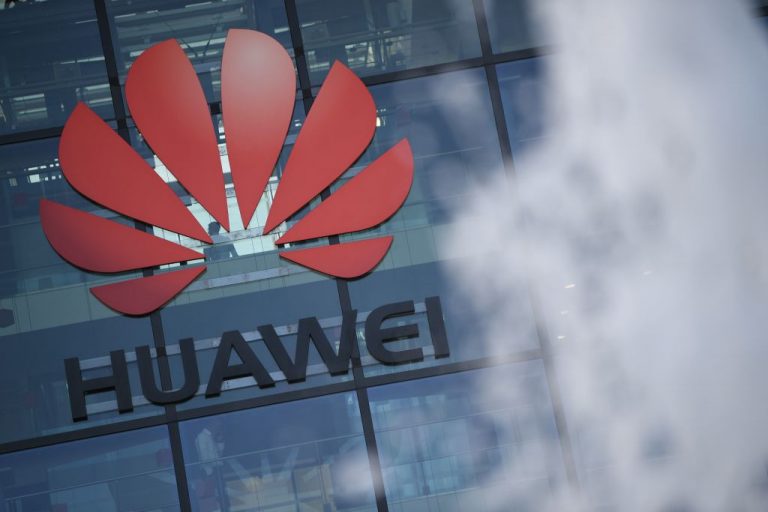Two men accused of spying on behalf of the Chinese Communist Party (CCP) have been put on trial in Poland. The men were arrested back in January 2019 for seeking business deals for Huawei as part of a foreign intelligence operation, and threatening Polish national security.
One of the men, an ex-sales director at Huawei named Weijing Wang, is a Chinese citizen. The second man, Piotr Durbajlo, is a cybersecurity expert with Polish citizenship.
“The indictment is partly classified, but its public section alleges that Wang is a Chinese intelligence agent and from 2011-2019 sought high-ranking contracts for Huawei that would give the Chinese company insight into, and influence over, state and local government data systems in Poland,” AP News reported, citing the local Gazeta Wyborcza daily.
Durbajlo allegedly provided Wang with documents and helped him to establish contacts. According to a Reuters report, Durbajlo is accused of “offering himself as a source of information” with regard to public administration.
Prosecutors accused Durbajlo of disclosing a monitoring system developed by Poland’s Warsaw military university to Wang. The system was used to prevent classified information, sent through fiber-optic communication networks, from being accessed by unauthorized third parties.
Success
You are now signed up for our newsletter
Success
Check your email to complete sign up
39-year-old Wang was accused of spending seven years spying for China by boosting Huawei’s ability to influence the Polish government and “enable it to… manage the state… technology infrastructure,” Reuters reported, citing court documents.
Wang’s lawyer said that the prosecutors had no proof to back up their accusations of espionage. “There is no evidence of anything illegal,” he said. Meanwhile, Huawei claimed that its operations followed “the highest standards of transparency and adherence to laws and regulation.” The company fired Wang following his arrest, but helped to finance the legal costs involved in his case.
Wang has been detained since his arrest, while Durbajlo was released on bail six months after entering into police custody. Both have pleaded not guilty. If convicted, the men face a potential prison term of up to 10 years. The trial is expected to last for around three months, but the date of the final verdict is still unknown.
An Associated Press report from January 2019 revealed that Wang received his bachelor’s degree from the Beijing University of Foreign Studies in 2004. Between 2006 and 2011, Wang worked for China’s General Consulate located in Gdańsk, Poland.
After joining Huawei in 2011, he worked as the director of public affairs until 2017, when he became the sales director of the public sector. Wang reportedly went by Stanislaw, a Polish first name.
Durbajlo has held top cybersecurity positions at the Office of the Electronic Communication, a government body overseeing telecommunication and cyber issues, as well as the Interior Ministry.
He served as the deputy director in the department of information security at the Internal Security Agency until 2011, when he was fired following a corruption scandal. During his time at the Internal Security Agency, Durbajlo was involved in developing a mobile communications system for Polish authorities.
In addition, Canada arrested Huawei executive Meng Wanzhou in December 2018 at the request of U.S. authorities. Thorsten Benner, director of the Global Public Policy Institute, a think tank, said at the time that the incident was “another nail in the coffin for Huawei’s European ambitions.” The arrest showed that “there will always be competition and acrimony related to Chinese tech companies.”
Huawei restrictions
In February 2019, then-U.S. Vice President Mike Pence visited Poland and held a press conference, where he praised the European nation for “protecting the telecoms sector from China.”
“The recent action your government has taken against a Huawei executive and a Polish national accused of cooperating with him demonstrate your government’s commitment to ensure our telecommunications sector is not compromised in a way that threatens our national security,” Pence said, referring to the arrest of Wang and Durbajlo.
In September 2019, the United States and Poland signed an agreement aimed at securing the 5G networks of the Eastern European country. Marc Short, chief of staff to the vice president, told reporters that the agreement would encourage other nations around the world to ensure that only “trusted providers” have access to their telecommunication networks.
“We must stand together to prevent the Chinese Communist Party from using subsidiaries like Huawei to gather intelligence while supporting China’s military and state security services — with our technology,” he said. Poland has delayed its 5G auction to expand coverage due to the pandemic, and an auction date has yet to be officially announced. “Mid-2021 has been touted,” according to Emerging Europe.
In May 2019, the Trump administration added Huawei to a trade blacklist, imposing restrictions that impeded the company’s ability to do business with U.S. firms. New Zealand, Japan, Australia, Sweden, Britain, and other countries have also taken action against the use of Huawei equipment in their networks.
With reporting by Arvind Datta.







